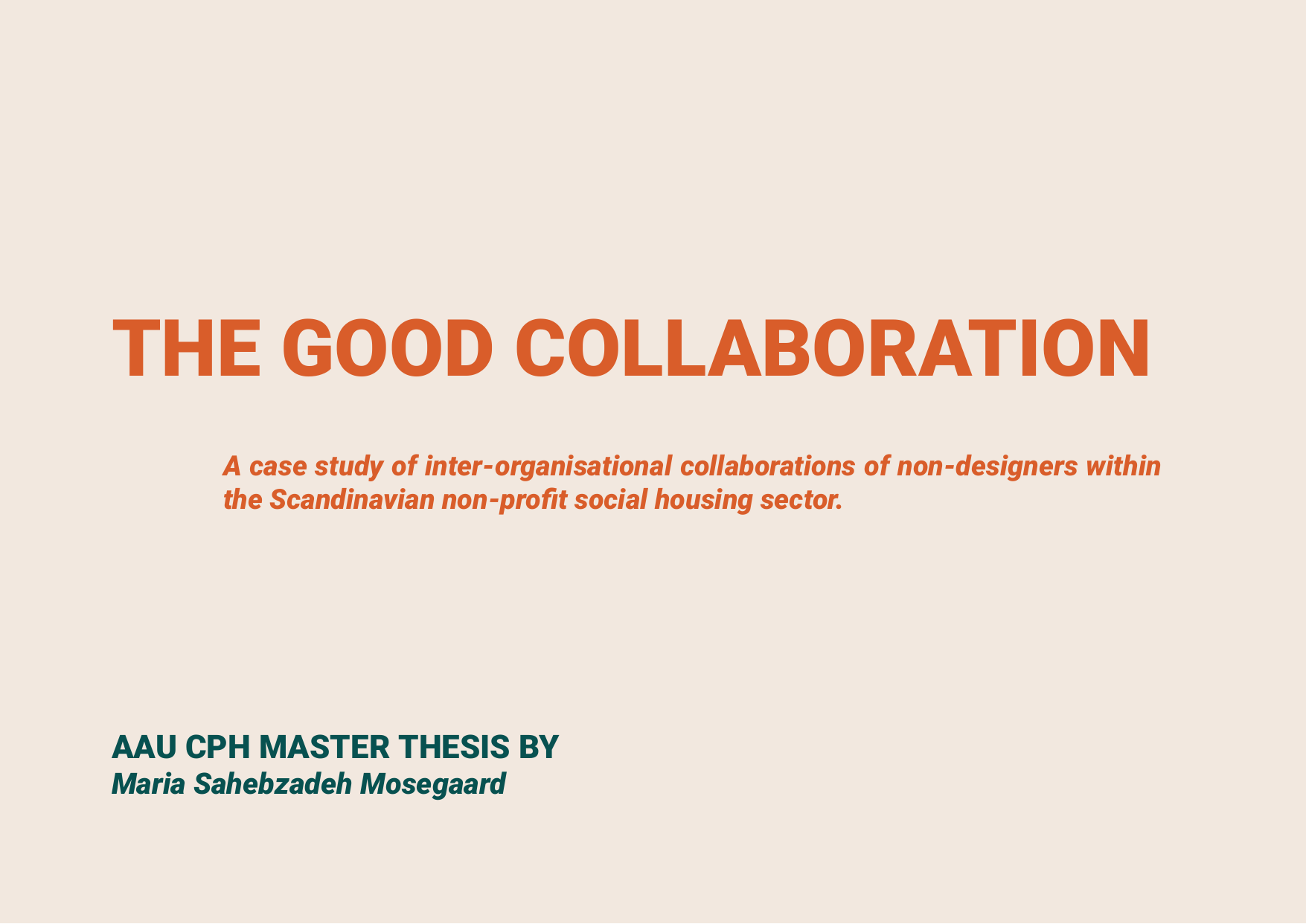
The Good Collaboration. A case study of inter- organisational collaborations of non-designers within the Scandinavian non-profit social housing sector.: A case study of inter- organisational collaborations of non-designers within the Scandinavian non-profit social housing sector.
Author
Term
4. term
Education
Publication year
2024
Submitted on
2024-10-18
Pages
86
Abstract
This thesis examines how service design practices can support the implementation process within an internal collaborative service product. The research was done in the context of renovation cases happening in housing association services, where a case study, in collaboration with a housing organisation, was used to explore the implementation process with in-depth interviews of experts & employees. The case resulted in recommendations for an updated thorough booklet. The project aimed to strengthen & align the collaborators being involved in the renovation processes. Through the case study, the implementation phase was examined in a practical context of an industry with relevant challenges where different departments work interdisciplinary. Each interview discovers advantages & disadvantages of certain methods & approaches when designing for a collaborative service. This study reveals that implementation phase studies can best be done by using real-time-experienced prototypes, as they showed to have the highest potential when testing the added value of broadening the knowledge to a broader audience in terms of more departments within the organisation & the end-user of their services. It also shows that when employees are test ambassadors & personalise a prototype this adds great value to a user test, but extra time & effort needs to be invested then approaching the implementation phase with testings. Keywords: Service Design, Design Thinking, Implementation Phase, qualitative data, interdisciplinary collaboration, non-designers, co-creation, prototyping.
This thesis examines how service design practices can support the implementation process within an internal collaborative service product. The research was done in the context of renovation cases happening in housing association services, where a case study, in collaboration with a housing organisation, was used to explore the implementation process with in-depth interviews of experts & employees. The case resulted in recommendations for an updated thorough booklet. The project aimed to strengthen & align the collaborators being involved in the renovation processes. Through the case study, the implementation phase was examined in a practical context of an industry with relevant challenges where different departments work interdisciplinary. Each interview discovers advantages & disadvantages of certain methods & approaches when designing for a collaborative service. This study reveals that implementation phase studies can best be done by using real-time-experienced prototypes, as they showed to have the highest potential when testing the added value of broadening the knowledge to a broader audience in terms of more departments within the organisation & the end-user of their services. It also shows that when employees are test ambassadors & personalise a prototype this adds great value to a user test, but extra time & effort needs to be invested then approaching the implementation phase with testings. Keywords: Service Design, Design Thinking, Implementation Phase, qualitative data, interdisciplinary collaboration, non-designers, co-creation, prototyping.
Keywords
Documents
